The job market and the tools and techniques used in recruitment are constantly evolving. Artificial Intelligence (AI) has become a game-changer in hiring in recent years. While AI-driven recruitment offers numerous benefits, it also brings challenges. We will explore the ever-changing job market trends and the challenges organisations face when implementing AI-driven recruitment strategies.
The Changing Job Market Landscape
Before delving into the challenges of AI-driven recruitment, it’s essential to understand the context of the evolving job market. Several trends are shaping the way companies hire and job seekers approach their careers:
- Remote Work: The COVID-19 pandemic accelerated the adoption of remote work, making it a permanent feature in many organisations. This shift has expanded the talent pool and changed hiring practices.
- Skills Over Degrees: Employers increasingly value skills and experience over formal degrees. Competency-based hiring is gaining traction.
- Diversity and Inclusion: There is a growing emphasis on diversity and inclusion in the workplace, necessitating unbiased and inclusive hiring practices.
- Gig Economy: The gig economy continues to grow, with more workers opting for freelance and contract positions over traditional full-time roles.
- AI and Automation: Automation and AI technologies are transforming job roles, creating new opportunities, and displacing some traditional jobs.
Challenges in AI-Driven Recruitment
While AI can help organisations adapt to these job market trends, it also presents several challenges:
- Bias in Algorithms: AI algorithms can perpetuate biases present in historical data, leading to unfair hiring practices. Ensuring fairness and reducing bias in AI-driven recruitment is a significant challenge.
- Data Privacy Concerns: Collecting and handling vast amounts of personal data during recruitment raises privacy concerns. Compliance with data protection regulations is crucial.
- Transparency: AI algorithms can be complex and lack transparency. Candidates and hiring managers may need help understanding how AI-based decisions are made.
- Candidate Experience: Over-reliance on AI can lead to losing the human touch in recruitment. Maintaining a positive candidate experience is essential to attract top talent.
- Constant Technological Advancements: Keeping up with the rapid pace of AI and machine learning advancements is challenging. Organizations need to update their systems and train their teams continually.
Addressing the Challenges
To effectively adapt to changing job market trends and navigate the challenges of AI-driven recruitment, organizations can take the following steps:
- Invest in Ethical AI: Ensure AI algorithms are developed and trained, focusing on fairness, diversity, and inclusion.
- Prioritise Data Privacy: Implement robust data protection measures and be transparent about data collection and usage.
- Combine AI and Human Expertise: Use AI to augment, not replace, human recruiters. Maintain a human-centric approach in recruitment.
- Regular Training and Monitoring: Train your teams and monitor AI systems for bias and performance.
- Stay Informed: Keep up with industry trends and technological advancements to remain competitive in the job market.
Conclusion
AI-driven recruitment is a powerful tool for organizations looking to adapt to the changing job market landscape. However, it comes with its challenges, including bias, data privacy concerns, and the need for transparency. By addressing these challenges and leveraging AI responsibly, organizations can stay ahead in the ever-evolving world of recruitment and attract the best talent to meet their evolving needs.


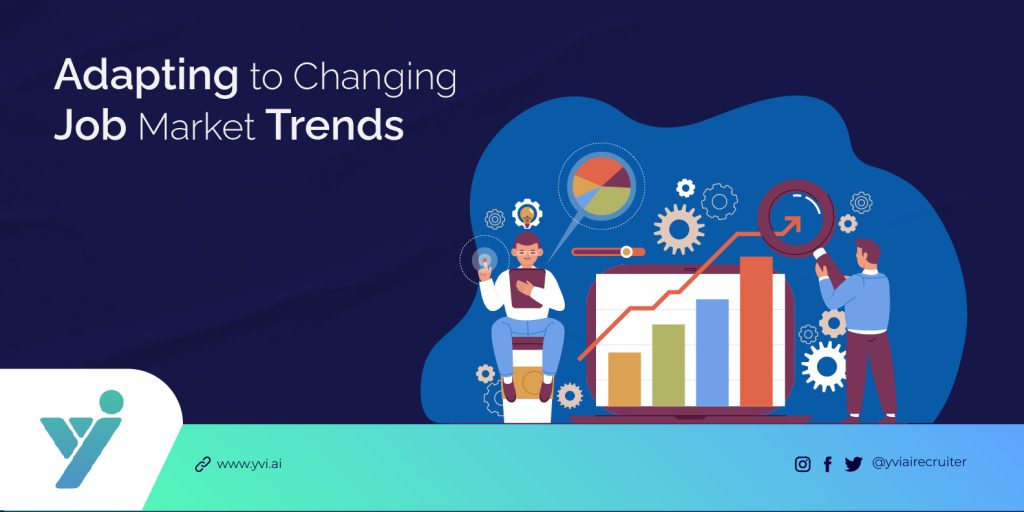
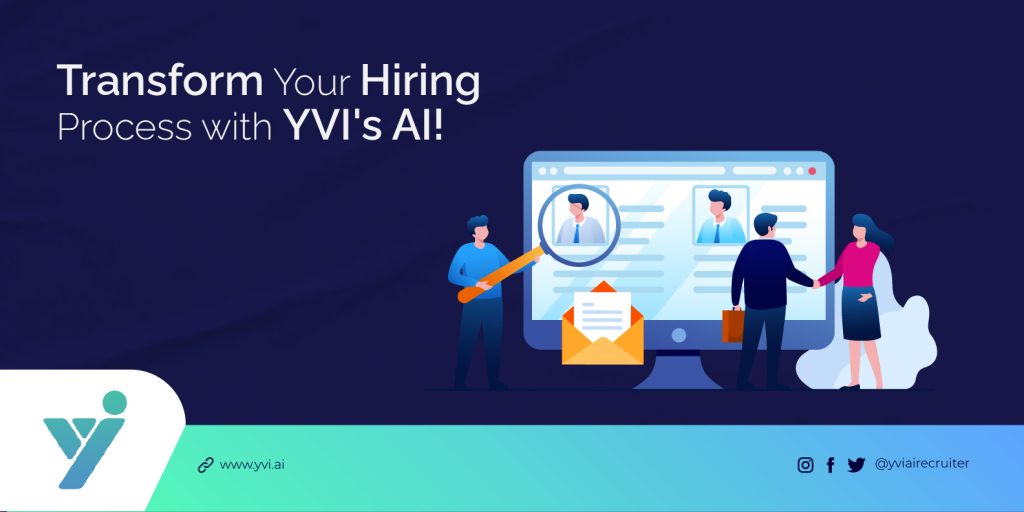
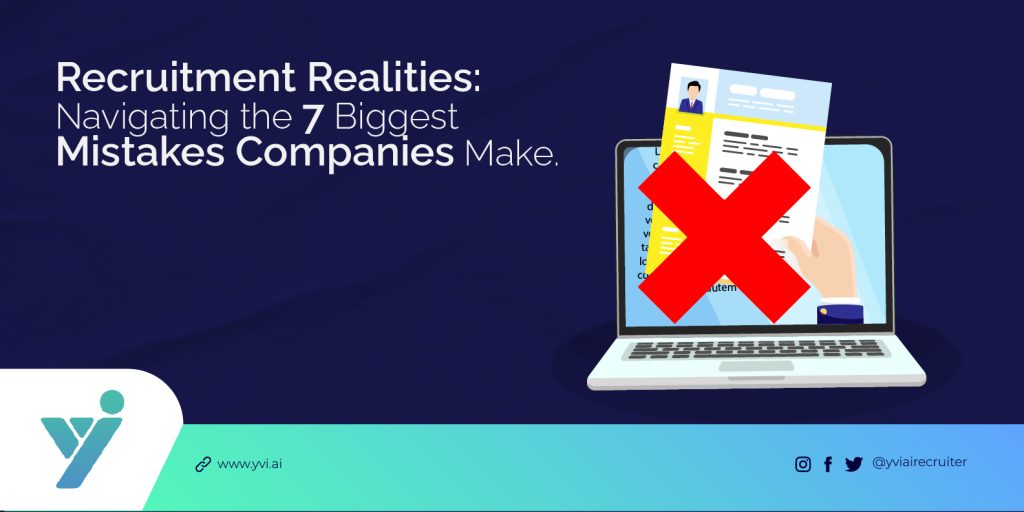
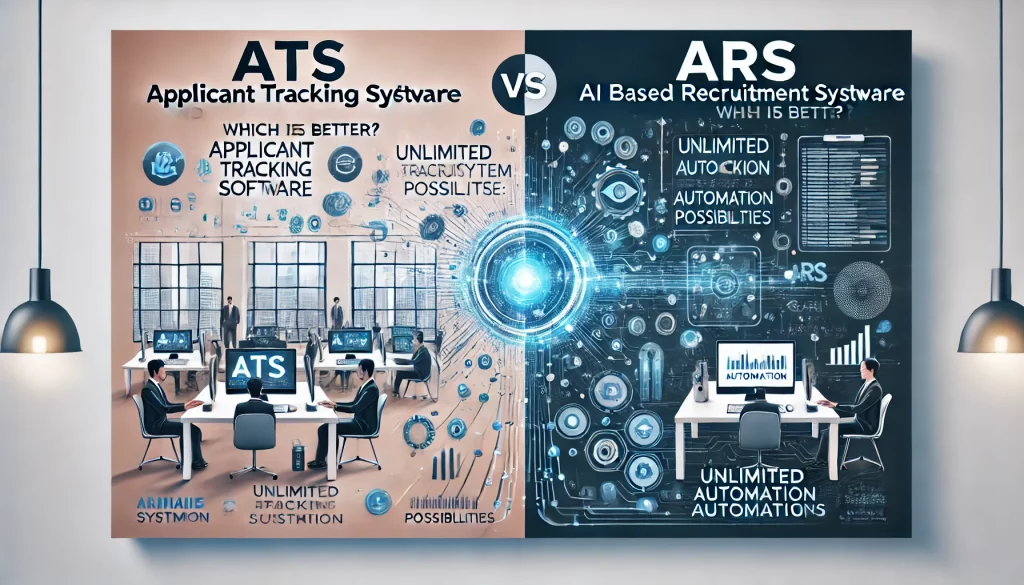
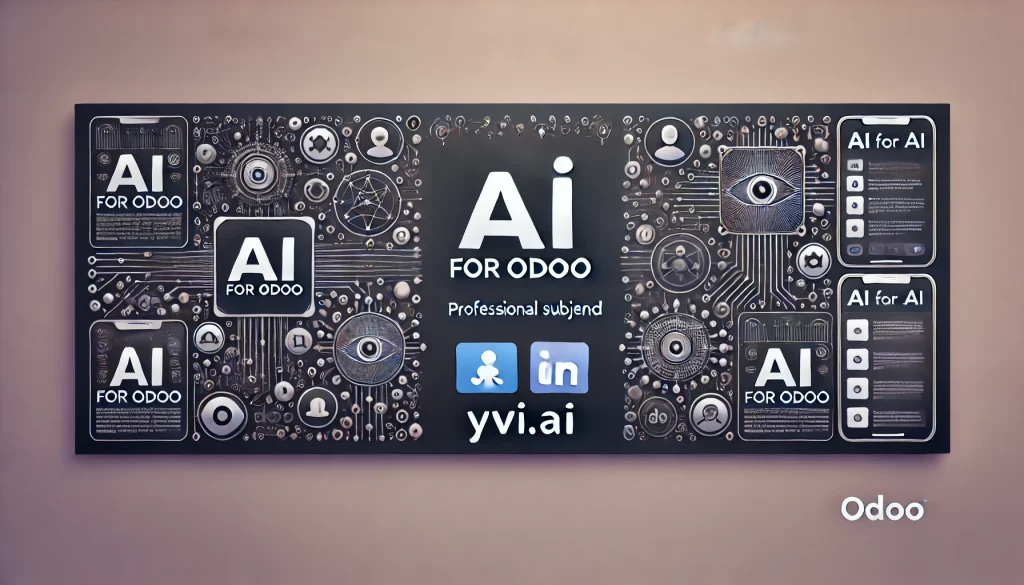
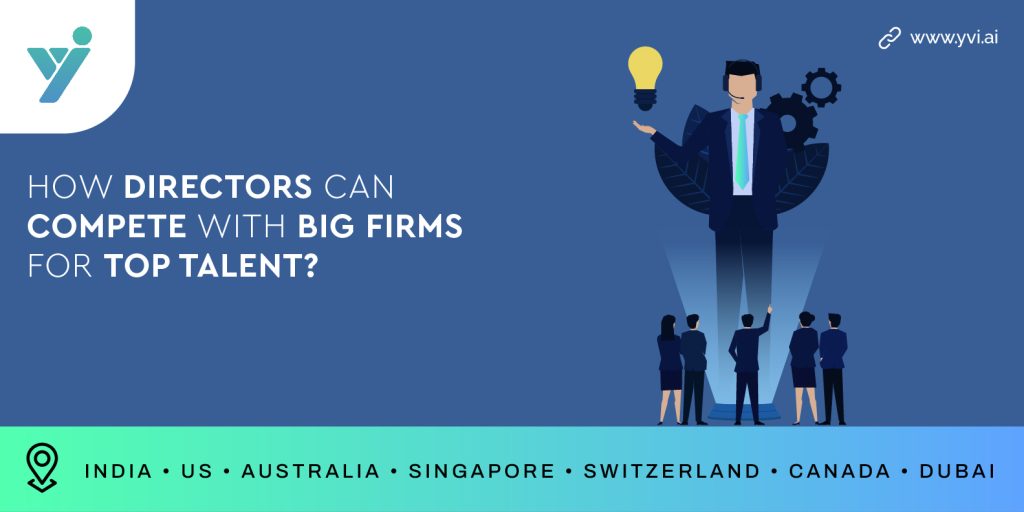
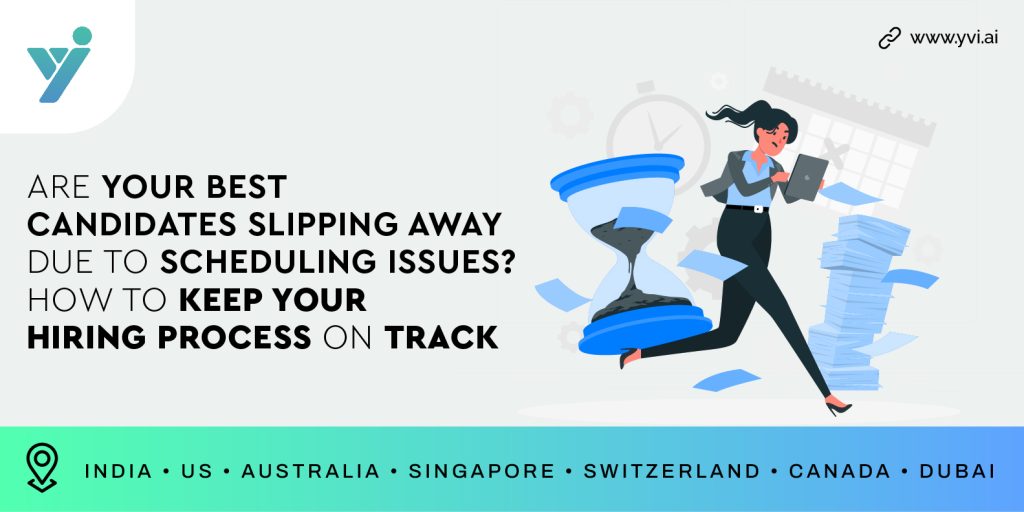
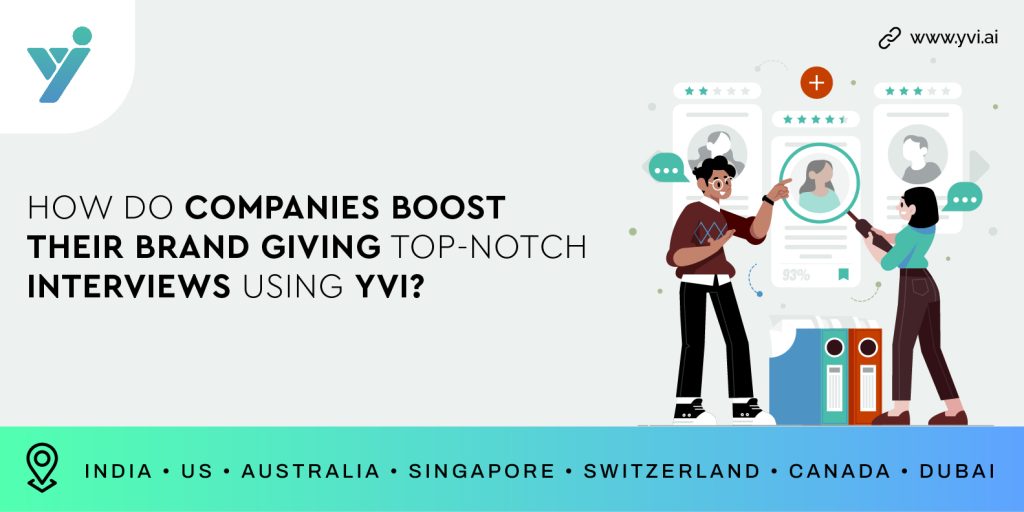

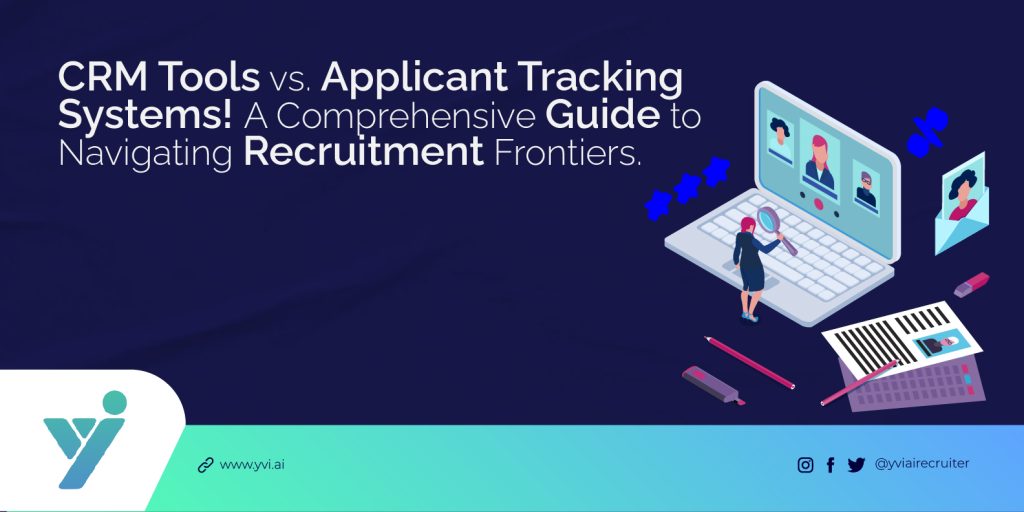
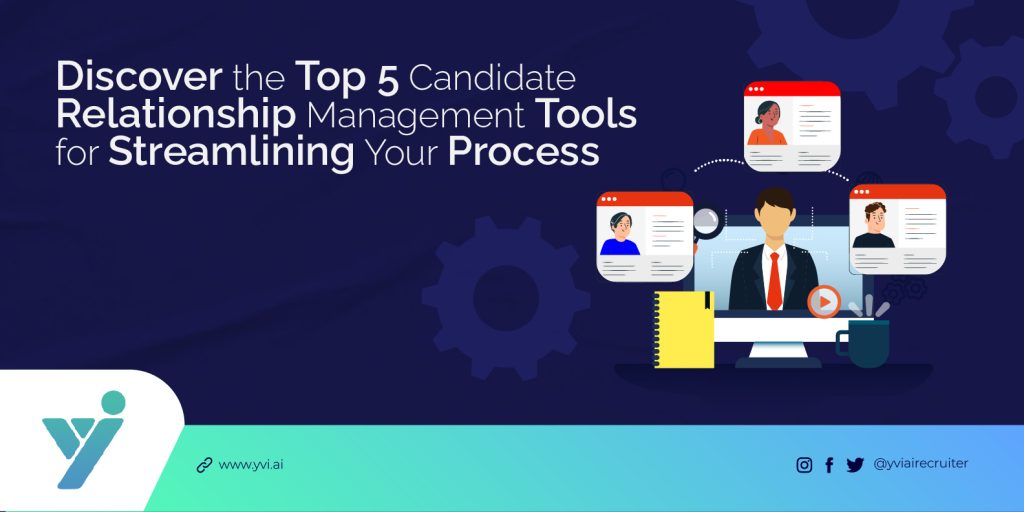
 Through stringent certifications and regulatory compliance,YVI guarantees that your hiring procedure conforms with international standards. We place a high priority on data security and privacy, in accordance with important regulations like GDPR and other sector-specific standards.
Through stringent certifications and regulatory compliance,YVI guarantees that your hiring procedure conforms with international standards. We place a high priority on data security and privacy, in accordance with important regulations like GDPR and other sector-specific standards. By providing candidates with clear access to their personal data and control over their rights, YVI empowers them. Transparency is maintained throughout the hiring process by making it simple for candidates to view, amend, or request that their information be removed.
By providing candidates with clear access to their personal data and control over their rights, YVI empowers them. Transparency is maintained throughout the hiring process by making it simple for candidates to view, amend, or request that their information be removed. Your hiring process will continue to be fair and unbiased thanks to YVI’s Agentic AI-powered bias and fairness monitoring tools. In order to detect and lessen any unfair practices, YVI continuously monitors possible biases in candidate evaluations.
Your hiring process will continue to be fair and unbiased thanks to YVI’s Agentic AI-powered bias and fairness monitoring tools. In order to detect and lessen any unfair practices, YVI continuously monitors possible biases in candidate evaluations. Transparency is a top priority for YVI, which has simple and transparent consent management procedures. Candidates receive comprehensive information about the use of their data, guaranteeing adherence to privacy laws.
Transparency is a top priority for YVI, which has simple and transparent consent management procedures. Candidates receive comprehensive information about the use of their data, guaranteeing adherence to privacy laws. Throughout the hiring process, candidate data is protected by YVI’s cutting-edge encryption technology. Every sensitive piece of information is safely encrypted to guarantee its confidentiality at all times.
Throughout the hiring process, candidate data is protected by YVI’s cutting-edge encryption technology. Every sensitive piece of information is safely encrypted to guarantee its confidentiality at all times. Role-Based Access Control (RBAC) is used by YVI to improve data security and privacy. The system makes sure that only authorized users can access sensitive candidate data by allocating permissions according to user roles.
Role-Based Access Control (RBAC) is used by YVI to improve data security and privacy. The system makes sure that only authorized users can access sensitive candidate data by allocating permissions according to user roles. YVI enables detecting and resolving threats instantly, YVI’s Agentic AI-powered threat detection and response tools improve the security of your hiring procedure. To safeguard candidate data from possible dangers, the platform constantly looks for unusual activity.
YVI enables detecting and resolving threats instantly, YVI’s Agentic AI-powered threat detection and response tools improve the security of your hiring procedure. To safeguard candidate data from possible dangers, the platform constantly looks for unusual activity. Strong audit and monitoring features are included in YVI to guarantee the security and integrity of your hiring data. A thorough and transparent audit trail is provided by the system’s logging and tracking of every action.
Strong audit and monitoring features are included in YVI to guarantee the security and integrity of your hiring data. A thorough and transparent audit trail is provided by the system’s logging and tracking of every action. YVI uses enterprise-grade security measures to protect user data. Strict access controls and cutting-edge encryption are used to protect candidate profiles, ensuring that private data is protected at all times.
YVI uses enterprise-grade security measures to protect user data. Strict access controls and cutting-edge encryption are used to protect candidate profiles, ensuring that private data is protected at all times. YVI makes your hiring process more efficient, YVI’s Agentic AI provides both automated and personalized reporting tools. You can easily track progress and monitor performance with the help of these reports, which offer customized insights into important metrics.
YVI makes your hiring process more efficient, YVI’s Agentic AI provides both automated and personalized reporting tools. You can easily track progress and monitor performance with the help of these reports, which offer customized insights into important metrics. You can create a more equitable and inclusive hiring process with the aid of YVI’s Agentic AI-powered diversity and inclusion analytics. You can better understand representation throughout your hiring process by monitoring important diversity metrics.
You can create a more equitable and inclusive hiring process with the aid of YVI’s Agentic AI-powered diversity and inclusion analytics. You can better understand representation throughout your hiring process by monitoring important diversity metrics. You can clearly see the availability, experience, and skill levels of your candidate network with YVI’s Agentic AI-powered talent pool insights. You can gain a better understanding of current market trends and gaps by examining your talent data.
You can clearly see the availability, experience, and skill levels of your candidate network with YVI’s Agentic AI-powered talent pool insights. You can gain a better understanding of current market trends and gaps by examining your talent data. Every step of your hiring process can be better understood and optimized with the aid of YVI’s Agentic AI-powered recruitment funnel analysis. You can precisely monitor the candidate flow from the first application to the last offer and identify areas that require improvement.
Every step of your hiring process can be better understood and optimized with the aid of YVI’s Agentic AI-powered recruitment funnel analysis. You can precisely monitor the candidate flow from the first application to the last offer and identify areas that require improvement. YVI with its sophisticated dashboard and reporting features, our Agentic AI driven recruitment platform improves your hiring procedure. When it comes to tracking important metrics like time-to-hire, conversion rates, and candidate quality, these tools provide a clear, real-time view of your entire recruitment process, from candidate sourcing to final selection.
YVI with its sophisticated dashboard and reporting features, our Agentic AI driven recruitment platform improves your hiring procedure. When it comes to tracking important metrics like time-to-hire, conversion rates, and candidate quality, these tools provide a clear, real-time view of your entire recruitment process, from candidate sourcing to final selection. Through Collaborative Interview Scheduling, YVI’s technology expedites the hiring process and facilitates smooth coordination between recruiters, hiring managers, and team members. This function, which is integrated with AI recruitment software, automates scheduling by determining shared availability, issuing calendar invites, and delivering real-time updates.
Through Collaborative Interview Scheduling, YVI’s technology expedites the hiring process and facilitates smooth coordination between recruiters, hiring managers, and team members. This function, which is integrated with AI recruitment software, automates scheduling by determining shared availability, issuing calendar invites, and delivering real-time updates. Role-Based Access Control (RBAC) is included into YVI’s platform to improve data security and expedite access control during the hiring process. By enabling administrators to provide particular permissions according to user roles, RBAC makes sure that team members only have access to the data required for their duties. Sensitive candidate data is protected by this methodical technique, which also lowers the possibility of illegal changes or data breaches. YVI upholds strict secrecy and complies with data protection laws by dividing access according to responsibilities like interviewers, HR managers, and recruiters.
Role-Based Access Control (RBAC) is included into YVI’s platform to improve data security and expedite access control during the hiring process. By enabling administrators to provide particular permissions according to user roles, RBAC makes sure that team members only have access to the data required for their duties. Sensitive candidate data is protected by this methodical technique, which also lowers the possibility of illegal changes or data breaches. YVI upholds strict secrecy and complies with data protection laws by dividing access according to responsibilities like interviewers, HR managers, and recruiters. YVI’s platform makes use of cloud-based accessibility to offer smooth, instant access to candidate data and recruitment tools from any location in the world. Without being constrained by actual office locations, HR teams and recruiters can efficiently handle hiring procedures, evaluate assessments, and work together thanks to this cutting-edge technology.
YVI’s platform makes use of cloud-based accessibility to offer smooth, instant access to candidate data and recruitment tools from any location in the world. Without being constrained by actual office locations, HR teams and recruiters can efficiently handle hiring procedures, evaluate assessments, and work together thanks to this cutting-edge technology. YVI’s Feedback Collection Modules make it easy for hiring teams to share and review interview feedback in real time. Instead of gathering notes from different emails or documents, everything is captured in one place,right on the recruitment platform. This helps recruiters and hiring managers stay organized and ensures that everyone’s input is considered when making decisions.
YVI’s Feedback Collection Modules make it easy for hiring teams to share and review interview feedback in real time. Instead of gathering notes from different emails or documents, everything is captured in one place,right on the recruitment platform. This helps recruiters and hiring managers stay organized and ensures that everyone’s input is considered when making decisions. Effective Teamwork Because they provide efficient communication, efficient problem-solving, and flawless project execution, workflows are essential for organizational success. By recognizing applicants that flourish in team environments and favorably impact group dynamics, we at YVI improve collaboration. Our platform assesses communication styles, flexibility, and interpersonal abilities to assist companies in choosing candidates who will fit in well with current teams. This tactical strategy fosters innovation and productivity at work in addition to enhancing team camaraderie.
Effective Teamwork Because they provide efficient communication, efficient problem-solving, and flawless project execution, workflows are essential for organizational success. By recognizing applicants that flourish in team environments and favorably impact group dynamics, we at YVI improve collaboration. Our platform assesses communication styles, flexibility, and interpersonal abilities to assist companies in choosing candidates who will fit in well with current teams. This tactical strategy fosters innovation and productivity at work in addition to enhancing team camaraderie. Your Personality Trait Score
Your Personality Trait Score At YVI, we understand that successful hiring goes beyond just matching skills to job descriptions,it’s about finding the right role fit and building strong team dynamics. Our platform evaluates both personal and interpersonal strengths to ensure candidates not only meet the technical requirements but also contribute positively to team culture. This holistic approach helps businesses form cohesive, high-performing teams that drive innovation and productivity.
At YVI, we understand that successful hiring goes beyond just matching skills to job descriptions,it’s about finding the right role fit and building strong team dynamics. Our platform evaluates both personal and interpersonal strengths to ensure candidates not only meet the technical requirements but also contribute positively to team culture. This holistic approach helps businesses form cohesive, high-performing teams that drive innovation and productivity. The Big 5 Model (OCEAN) is a well-known framework for assessing personality traits,neuroticism, agreeableness, extraversion, conscientiousness, and openness. These traits help understand how individuals behave and perform in various situations. YVI’s hiring platform integrates this model to help companies identify candidates who not only have the right skills but also align with the organization’s culture. This scientific approach offers deeper insights beyond resumes, revealing traits that influence long-term success and workplace behavior.
The Big 5 Model (OCEAN) is a well-known framework for assessing personality traits,neuroticism, agreeableness, extraversion, conscientiousness, and openness. These traits help understand how individuals behave and perform in various situations. YVI’s hiring platform integrates this model to help companies identify candidates who not only have the right skills but also align with the organization’s culture. This scientific approach offers deeper insights beyond resumes, revealing traits that influence long-term success and workplace behavior. Hiring the right people starts with trust and knowing who you’re bringing into your team. YVI’s application tracking system integrates Agentic AI to manage background verification in the recruitment process, verifying a candidate’s credentials, helping you make informed decisions with speed and confidence.
Hiring the right people starts with trust and knowing who you’re bringing into your team. YVI’s application tracking system integrates Agentic AI to manage background verification in the recruitment process, verifying a candidate’s credentials, helping you make informed decisions with speed and confidence. Our post-offer retention focuses on keeping candidates engaged and excited to join your team. We help you build a welcoming experience from the moment they say “yes” until their first day, making sure they feel valued and connected, and reducing the chances they’ll change their mind.
Our post-offer retention focuses on keeping candidates engaged and excited to join your team. We help you build a welcoming experience from the moment they say “yes” until their first day, making sure they feel valued and connected, and reducing the chances they’ll change their mind. In recruitment, timely and seamless communication can make all the difference. That’s why YVI is one of the best application tracking systems that offers a robust omnichannel communication feature, ensuring you stay connected with candidates on their preferred platforms, whether it’s email, SMS, WhatsApp, or in-app messaging. No matter where they are, your message reaches them clearly and instantly.
In recruitment, timely and seamless communication can make all the difference. That’s why YVI is one of the best application tracking systems that offers a robust omnichannel communication feature, ensuring you stay connected with candidates on their preferred platforms, whether it’s email, SMS, WhatsApp, or in-app messaging. No matter where they are, your message reaches them clearly and instantly. YVI’s intelligent chatbots, powered by Agentic AI, handle FAQs about job openings, application status, and interview details, providing instant responses that keep candidates engaged day or night.
YVI’s intelligent chatbots, powered by Agentic AI, handle FAQs about job openings, application status, and interview details, providing instant responses that keep candidates engaged day or night. Your career page is more than a job board, it’s the first glimpse candidates get of who you are as a company. With YVI’s customizable career pages, you can create a vibrant, branded job portal that truly captures your company’s culture, vibe, and values.
Your career page is more than a job board, it’s the first glimpse candidates get of who you are as a company. With YVI’s customizable career pages, you can create a vibrant, branded job portal that truly captures your company’s culture, vibe, and values. Recruitment Automation is transforming talent acquisition by replacing manual, time-consuming processes with intelligent technology. YVI’s Agentic AI and machine learning tools ensure everything is automated from job posting distribution and resume parsing to candidate scoring and interview scheduling.
Recruitment Automation is transforming talent acquisition by replacing manual, time-consuming processes with intelligent technology. YVI’s Agentic AI and machine learning tools ensure everything is automated from job posting distribution and resume parsing to candidate scoring and interview scheduling. You can conduct online tests and interviews with confidence while maintaining security and fairness with YVI’s Intelligent Proctoring. During tests, this AI-powered feature actively watches candidates, tracking eye movements, spotting questionable behaviour, flagging several individuals in the picture, and spotting possible rule infractions.
You can conduct online tests and interviews with confidence while maintaining security and fairness with YVI’s Intelligent Proctoring. During tests, this AI-powered feature actively watches candidates, tracking eye movements, spotting questionable behaviour, flagging several individuals in the picture, and spotting possible rule infractions. YVI’s AI-based Interview relies on Agentic AI to listen to what candidates say, pick up on their tone, notice their body language, and check how well their answers fit the job, all in real time. This isn’t about replacing your judgment; it’s about making it sharper. The AI keeps things fair by judging everyone the same way, cutting out unconscious bias and letting you focus on who’s truly right for the role.
YVI’s AI-based Interview relies on Agentic AI to listen to what candidates say, pick up on their tone, notice their body language, and check how well their answers fit the job, all in real time. This isn’t about replacing your judgment; it’s about making it sharper. The AI keeps things fair by judging everyone the same way, cutting out unconscious bias and letting you focus on who’s truly right for the role. YVI’s AI-based video Interview feature revolutionizes how you engage with candidates by combining the ease of remote interviews with smart feedback from Agentic AI. This feature allows recruiters to administer structured video interviews anywhere, anytime, while the system automatically analyzes responses for tone, speech patterns, facial expressions, and content relevance.
YVI’s AI-based video Interview feature revolutionizes how you engage with candidates by combining the ease of remote interviews with smart feedback from Agentic AI. This feature allows recruiters to administer structured video interviews anywhere, anytime, while the system automatically analyzes responses for tone, speech patterns, facial expressions, and content relevance.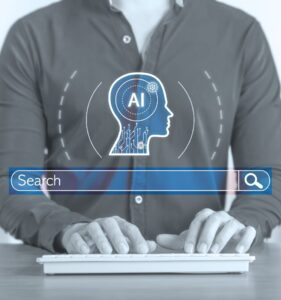 YVI’s AI-Based Question Bank streamlines your interviews, saving valuable time and ensuring consistency across the hiring team. Powered by cutting-edge AI in recruitment technology, the platform helps you move beyond generic questions and understand specific scenarios and behavioral indicators. This allows for a deeper understanding of each candidate’s capabilities and potential, leading to more informed and confident hiring decisions.
YVI’s AI-Based Question Bank streamlines your interviews, saving valuable time and ensuring consistency across the hiring team. Powered by cutting-edge AI in recruitment technology, the platform helps you move beyond generic questions and understand specific scenarios and behavioral indicators. This allows for a deeper understanding of each candidate’s capabilities and potential, leading to more informed and confident hiring decisions. 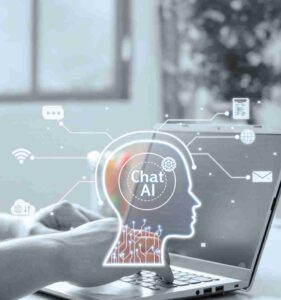 Picture a hiring process where candidates feel valued from the very first interaction; that’s the magic of YVI’s AI-based chatbot. This is built with Agentic AI that interacts with applicants in real time, asking thoughtful, job specific questions and quickly assessing their responses. It’s like having a tireless assistant who saves recruiters hours by identifying top talent early, all while creating a welcoming and professional experience for every candidate.
Picture a hiring process where candidates feel valued from the very first interaction; that’s the magic of YVI’s AI-based chatbot. This is built with Agentic AI that interacts with applicants in real time, asking thoughtful, job specific questions and quickly assessing their responses. It’s like having a tireless assistant who saves recruiters hours by identifying top talent early, all while creating a welcoming and professional experience for every candidate. Intelligent Resume Screening and Scoring
Intelligent Resume Screening and Scoring